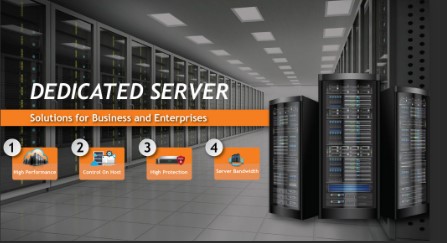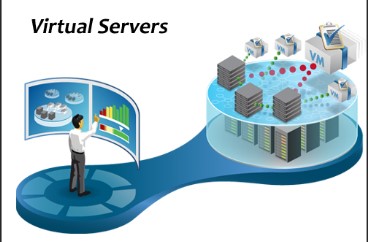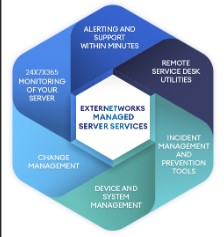Best Managed Server
In the realm of IT infrastructure, managed servers play a pivotal role in ensuring robust, secure, and efficient operations for businesses of all sizes.
Understanding their core components and benefits is crucial for making informed decisions in modern technology landscapes.
What is a Managed Server?
Definition and Core Features
A managed server refers to a dedicated hosting service where the service provider oversees hardware and software maintenance, configuration, and support. It includes proactive management tasks aimed at optimizing performance and ensuring reliability.
Key Benefits of Managed Server Hosting
Managed server hosting offers several advantages, such as enhanced security, reliable uptime, and expert technical support. These benefits relieve businesses of IT management burdens, allowing them to focus on core operations and strategic growth.
Comparison with Unmanaged Servers
Unlike unmanaged servers, where clients handle all maintenance and troubleshooting, managed servers provide comprehensive support. This includes monitoring, updates, and troubleshooting, offering peace of mind and operational stability.
Why Choose a Managed Server?
Advantages for Businesses and Organizations
Businesses benefit from managed servers through improved operational efficiency, reduced downtime, and enhanced security measures. These servers also enable scalability, supporting business growth without compromising performance.
Cost Considerations and Return on Investment
While initial costs may seem higher than unmanaged alternatives, the long-term savings from reduced downtime and enhanced productivity justify the investment in managed server solutions.
Scalability and Performance Enhancements
Managed servers are designed to scale seamlessly with business needs, offering customizable resources and performance enhancements that adapt to fluctuating demands and growth phases.
Key Features of a Best-Managed Server
Robust Security Measures
Data Encryption and Secure Access Protocols
Managed servers implement encryption protocols and secure access mechanisms to safeguard sensitive data against unauthorized access and cyber threats.
Regular Security Audits and Updates
Continuous security audits and proactive updates ensure that servers are fortified against evolving threats, minimizing vulnerabilities and enhancing overall data protection.
High Availability and Uptime Guarantee
Redundant Systems and Failover Mechanisms
Built-in redundancy and failover mechanisms ensure high availability, minimizing downtime and ensuring seamless operation even during hardware failures or network disruptions.
SLA Commitments and Performance Monitoring
Service Level Agreements (SLAs) guarantee uptime percentages and performance benchmarks, backed by rigorous monitoring and proactive maintenance to meet service level expectations.
24/7 Technical Support and Management
Expert Support Team and Response Times
Managed server providers offer round-the-clock technical support from skilled professionals, ensuring prompt issue resolution and continuous server management.
Proactive Monitoring and Issue Resolution
Proactive monitoring tools and automated alerts enable quick identification and resolution of potential issues, maintaining optimal server performance and reliability.
Types of Managed Server Hosting
Dedicated Managed Servers
Exclusive Resources and Customization Options
Dedicated servers provide exclusive hardware resources and customizable configurations tailored to specific business requirements, ideal for high-performance applications and websites.
Ideal for High-Traffic Websites and Applications
With dedicated resources, these servers ensure consistent performance and reliability, handling high traffic volumes and complex workloads without compromise.
Virtual Private Server (VPS) Hosting
Virtualization Technology and Resource Allocation
VPS hosting partitions physical servers into virtual instances, offering scalable resources and efficient resource allocation based on workload demands.
Scalability and Cost Efficiency Benefits
VPS solutions provide cost-effective scalability, allowing businesses to adjust resources dynamically without overprovisioning, thereby optimizing operational costs.
Cloud Managed Servers
Scalable Infrastructure and On-Demand Resources
Cloud-managed servers leverage scalable cloud infrastructure, offering on-demand resources and elasticity to accommodate varying workloads and business growth.
Flexibility and Disaster Recovery Capabilities
Cloud solutions ensure flexibility with pay-as-you-go models and built-in disaster recovery features, enhancing business continuity and mitigating operational risks.
Choosing the Best Managed Server Provider
Evaluating Service Level Agreements (SLAs)
Performance Guarantees and Uptime Commitments
SLAs outline performance guarantees and uptime commitments, defining service expectations and ensuring service reliability for critical business operations.
Data Security and Compliance Standards
Providers must adhere to stringent data security regulations and compliance standards, ensuring data integrity and confidentiality across all managed services.
Reputation and Customer Reviews
Case Studies and Success Stories
Reviewing case studies and success stories provides insights into a provider’s track record, showcasing their ability to deliver reliable, scalable, and secure managed server solutions.
Industry Recognition and Certifications
Industry awards and certifications validate a provider’s expertise and commitment to excellence in managed server hosting, instilling confidence in their service capabilities.
Scalability and Future-Proofing
Growth Potential and Resource Scaling Options
Scalable solutions accommodate business growth and evolving demands, offering flexible resource scaling options to align with expanding operational requirements.
Migration Support and Integration Services
Providers offering seamless migration support and integration services facilitate smooth transitions to managed server environments, minimizing disruption and optimizing performance.
Managed Server Management Best Practices
Implementing Effective Backup and Recovery Strategies
Data Backup Frequency and Recovery Point Objectives (RPO)
Establishing data backup schedules and recovery point objectives ensures data resilience, enabling rapid data restoration in the event of system failures or data loss incidents.
Disaster Recovery Plans and Failover Procedures
Developing comprehensive disaster recovery plans and failover procedures mitigates risks and minimizes downtime, safeguarding business continuity during unforeseen disruptions.
Optimizing Server Performance
Resource Allocation and Load Balancing Techniques
Efficient resource allocation and load balancing techniques optimize server performance, enhancing responsiveness and scalability while maximizing resource utilization.
Performance Tuning and Monitoring Tools
Utilizing performance tuning tools and monitoring solutions enables proactive performance optimization, identifying and resolving bottlenecks before they impact operations.
Security Best Practices
Access Control and Authentication Mechanisms
Implementing robust access control and authentication mechanisms safeguards server resources from unauthorized access, bolstering overall system security.
Vulnerability Assessments and Patch Management
Regular vulnerability assessments and timely patch management mitigate security risks, ensuring servers are protected against emerging threats and vulnerabilities.
Case Studies: Success Stories with Managed Server Solutions
Enterprise Solutions: Scaling Operations Seamlessly
Large enterprises leverage managed server solutions to scale operations seamlessly, supporting expansive IT infrastructures and mission-critical applications with reliable performance.
E-commerce Businesses: Ensuring High Availability
E-commerce businesses rely on managed servers to ensure high availability and uninterrupted online transactions, delivering a seamless shopping experience to customers.
Startups: Supporting Rapid Growth and Innovation
Startups benefit from managed server scalability and flexibility, adapting to rapid growth phases and innovation cycles without compromising performance or security.
Future Trends in Managed Server Hosting
Integration with Artificial Intelligence (AI) and Machine Learning (ML)
AI and ML integration enhances managed server capabilities, optimizing workload management, predictive analytics, and proactive maintenance for improved efficiency and performance.
Edge Computing and IoT (Internet of Things) Integration
Edge computing and IoT integration extend managed server functionalities to edge devices, enabling real-time data processing, low-latency applications, and decentralized computing.
Green Computing and Sustainable Server Practices
Adopting green computing initiatives and sustainable server practices reduces carbon footprints and energy consumption, promoting environmental stewardship and corporate responsibility.
Rise of Bleisure Travel and its Implications
Bleisure travel blends business trips with leisure activities, influencing managed server hosting by accommodating diverse travel needs and enhancing work-life balance for business travelers.
Conclusion: Embracing the Benefits of Managed Server Hosting
Recap of Key Features and Benefits
Managed server hosting offers robust security, high availability, and scalable solutions tailored to diverse business needs, ensuring optimal performance and reliability.
Encouragement to Consider Managed Server Solutions
Businesses are encouraged to explore managed server solutions to streamline operations, enhance IT efficiency, and achieve sustainable growth in competitive markets.
Final Thoughts on the Future of Managed Server Hosting
As technology evolves, managed server hosting continues to innovate with advanced features, ensuring businesses remain agile, secure, and resilient in a rapidly changing digital landscape.





